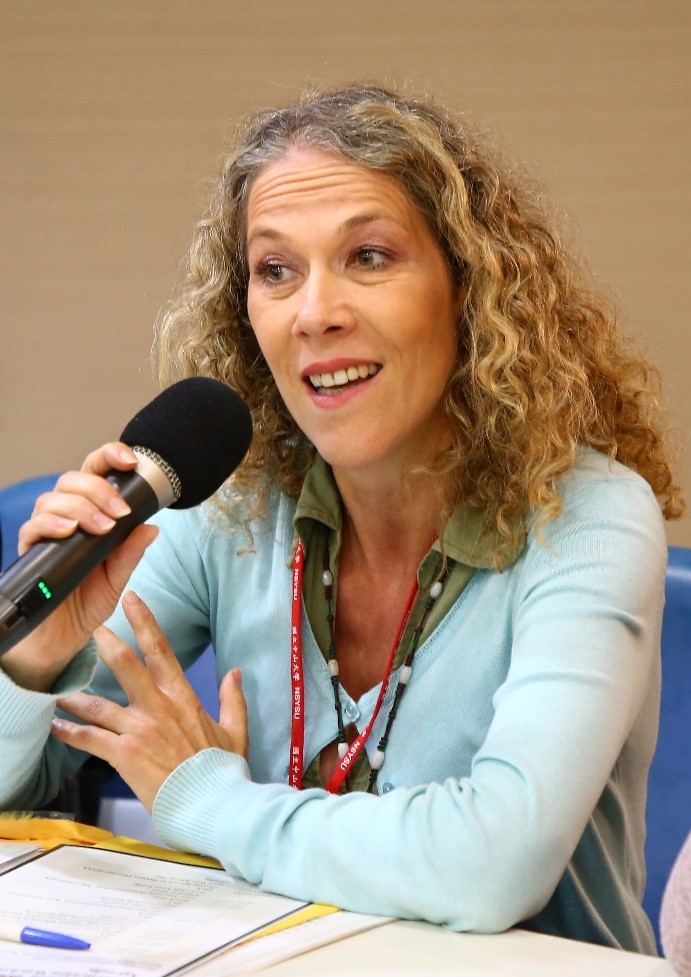Sladjana Cabrilo, PhD
What is the future of human capital in the era of global digital transformation?
This speech will be focused on two important issues for sustainability of human society, human capital and digital transformation. Human capital, defined as a set of human-based resources including human knowledge, skills, experience, innovativeness, creativity, motivation, attitude, intuition and entrepreneurial and leadership abilities, has an amazing power to create value and wellbeing in the world. However, we are all living in the digital world, where technology evolves faster than the ability of people (human capital) to adapt to new digital-based work and processes. Rapid technological advances (artificial intelligence, big data, cloud computing, Internet of things, and automation technologies) have the potential to significantly disrupt labor markets bringing new challenges and opportunities to human capital. Digital transformation, ’a journey to become digital’, was already in full flight prior to Covid-19 pandemic. However, the pandemic has speeded up the transition to new ways of working as businesses around the world had to change to remote work virtually overnight. The sudden shift has also led to the greater need to develop human capital strategies for a very different future of work.
This speech will discuss challenges and opportunities for human capital in the era of digital transformation, present a few perspectives on the future of human capital (optimistic-neutral-pessimistic), and offer some ways to overcome or slow down potential ‘technological unemployment’ disaster. The speech deals with the following relevant questions: Do we need to update the concept of human capital taking into consideration global large-scale changes such as digitalization, pandemic, climate changes, and sustainability crisis? Does the new post(?)-pandemic world of work call for novel understandings concerning human capital? How will jobs look like and how will human capital have to evolve to be able to create value in a new reality? Which core skills and competences will be relevant in 2050? How to upgrade and update existing skills or build new skills and competences to avoid becoming economically redundant in the future? What is the role of education and governance in this transformation of human capital?
Sladjana Cabrilo, PhD
D.Sc. Slađana Čabrilo is a Professor at I-Shou University, Department of International Business Administration, in Taiwan. She holds PhD in Industrial Engineering and Engineering Management and M.Sc. in Electrical Engineering from the University of Novi Sad (Serbia). Her major teaching and research areas focus on intellectual capital, knowledge management, innovation and business performance, open innovation, and recently digital transformation, as one of the biggest imperatives for organizations in the short-term future. Her experience includes participation in scientific and industry-related projects, publishing more than 80 academic articles, conference papers, books and book chapters, holding lectures, keynote speeches and presentations worldwide. Some of these were held at the World Bank (Paris), the Global Forum (Washington DC, USA), the Austrian Development Bank (Vienna, Austria), the George Washington University (Washington DC, USA), National ChengChi University (Taipei, Taiwan), National Cheng Shiu University (Kaohsiung, Taiwan), and Roma Tre University (Rome, Italy). She is highly engaged in scientific and professional networks through editorial and reviewing work, and positions in editorial boards, program committees, research institutes and professional organizations around the world. Slađana is a member of the New Club of Paris, which is the association of extraordinary scientists and “intellectual entrepreneurs”, and the agenda developer for the global knowledge economy. She received Honourable mention – Best Paper Award at the European Conference on Intellectual Capital in 2009, in the Netherlands for the paper „IC-Based Inter-Industry Variety in Serbia“ and Outstanding Teaching Award at the I-Shou University for the 2020-2021 academic year.




